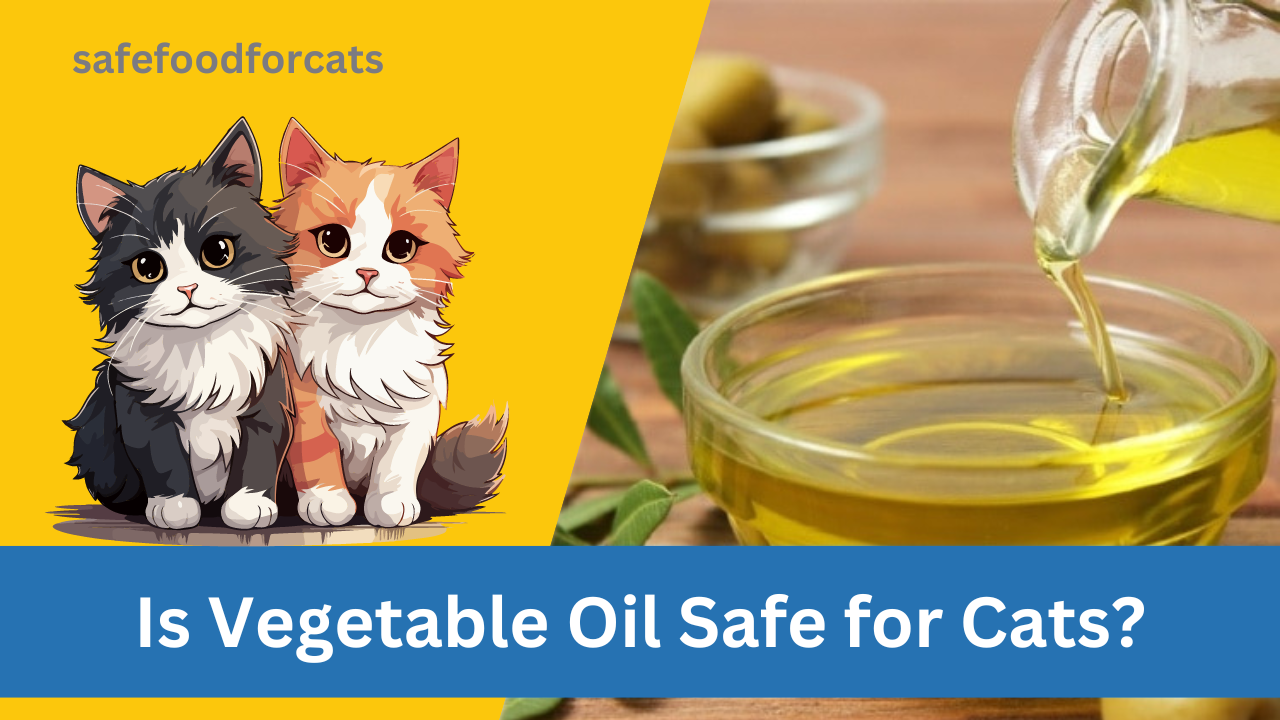Navigating Feline Nutrition with Confidence
When it comes to our feline friends’ well-being, every ingredient in their diet warrants careful consideration. The question of whether vegetable oil is a safe addition to their nutrition is a pertinent one, especially for those pet owners who are exploring homemade cat food options. In this article, we delve into the world of vegetable oil and its compatibility with feline health, providing insights into its benefits, potential concerns, and considerations.
Exploring the Realm of Vegetable Oil
Decoding Vegetable Oil: A Multifaceted Ingredient
Vegetable oil, a staple in culinary landscapes, stands as a versatile ingredient derived from a variety of plant sources. Extracted from different parts of plants, this triglyceride oil is a common presence in kitchens, revered for its neutral taste and color. However, the relationship between vegetable oil and feline health requires closer examination.
Unveiling the Nutritional Composition
Nutrients in the Spotlight: Omega Fatty Acids and Vitamin E
The nutritional profile of vegetable oil encompasses omega-6 and omega-3 fatty acids, both playing pivotal roles in overall health. Additionally, vitamin E, polyunsaturated and monounsaturated fats and a hint of saturated fats contribute to the oil’s intricate composition. However, it’s crucial to recognize that vegetable oil is a fat-dense entity, devoid of carbohydrates, iron, magnesium, and calcium.

The Crucial Question: Is Vegetable Oil Safe for Cats?
Navigating the Safe Haven
Contrary to concerns that may arise, vegetable oil is, in fact, safe for cats when used judiciously. Its presence is not an uncommon sight in commercial cat food formulations, contributing to the nutritional balance of feline diets. Moderation stands as the guiding principle; a measured approach ensures that the benefits of vegetable oil can be harnessed without compromising feline health.
Harnessing the Benefits: Health Boosts for Felines
Aiding Cardiovascular Health
Incorporating vegetable oil in feline diets can have potential benefits for cardiovascular health. The presence of unsaturated fats, particularly polyunsaturated fats, can contribute to maintaining heart health, reducing the risk of cardiovascular issues, and promoting overall well-being.
Tackling Inflammation and Digestive Woes
The properties of vegetable oil extend to mitigating inflammation and supporting digestion in felines. Omega-6 fatty acids, found in abundance in vegetable oil, are recognized for their anti-inflammatory potential. Improved digestion and a potential reduction in hairball formation further underscore the advantages of incorporating vegetable oil into cat diets.
Critical Considerations: Choosing the Right Oil

The Intricate Dance of Oil Ratios
Selecting the right vegetable oil for feline consumption requires an understanding of the ratios of saturated fats, monounsaturated fats, and polyunsaturated fats. The optimal balance contributes to a healthier dietary experience for cats.
A Cautionary Note: Vegetable Oil’s Culinary Comrades
Certain oils, such as coconut oil and olive oil, have garnered approval from veterinarians as suitable for feline consumption. While these oils share common ground with vegetable oil in terms of health benefits, moderation remains key to preventing any adverse effects.
The Fine Line: Moderation as the Watchword
Navigating Portion Control
The adage “too much of a good thing” holds even for ingredients as beneficial as vegetable oil. Excessive consumption can lead to digestive disturbances, impacting a cat’s overall well-being. It’s essential to consult a veterinarian and determine appropriate portion sizes tailored to a cat’s individual needs.
Navigating Precautions and Exceptions
Tailoring the Approach: Individual Feline Needs
While vegetable oil holds promise for many cats, certain situations warrant caution. Cats suffering from obesity, pancreatitis, diarrhea, vomiting, or gastroenteritis should have their diets carefully curated, with input from veterinary professionals.
In the Realm of Feline Nutrition: A Wholesome Approach
Holistic Nutrition: The Culmination of Care
As responsible pet owners, our commitment to our feline companions’ health extends to their nutritional intake. With its array of benefits and careful implementation, vegetable oil can play a positive role in feline nutrition. However, seeking guidance from veterinary experts before introducing any new element to a cat’s diet is a non-negotiable step on this journey.
The Final Note: Feline Well-Being at the Center
Vegetable oil, a culinary companion in human households, can also serve as a nourishing addition to feline diets. Navigating this path with awareness, discernment, and the guidance of veterinary professionals ensures that our cats’ well-being remains at the forefront of our nutritional choices.

